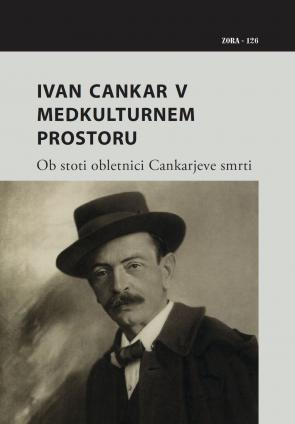Ivan Cankar v medkulturnem prostoru: ob stoti obletnici Cankarjeve smrti
Keywords:
Ivan Cankar, Slovene literature, interculturality, multilingualism, literary translations, discourses, cultural politicsSynopsis
Ivan Cankar in an Intercultural Space: In Honour of Cankar’s 100th Commemoration Day. 2018 marks the 100th anniversary of Ivan Cankar’s passing. At the department of Slavic languages and literature at the Faculty of Arts in Maribor, we decided to honour this giant of Slovene and European literature and visionary political thinker by publishing a scientific monograph entitled Ivan Cankar in an Intercultural Space, which includes thirty-six discussions. Authors from the Faculty of Arts in Maribor, colleagues from the universities in Primorska, Nova Gorica and Ljubljana, as well as authors from Austria, Italy, Germany, Hungary, Slovakia and Russia have all contributed to the monograph. The discussions have different scientific viewpoints and new theoretical bases. The main part of the monograph includes discussions that place the Slovene classical writer into the multilingual and multicultural space of the former Danube region monarchy, as well as the broader European and Anglo-American space. The discussions are divided into three extensive groups. The first and most extensive group includes twenty-seven interdisciplinary, literary historical, cultural and translational discussions, which are further divided into four parts: Cankar in different discourses; Cankar, multilingualism, interculturalism and the translations of his works; Cankar and his literary contemporaries and Audience reception, interpretation, intertextual and intermedial research on Cankar’s work. The second group includes five linguistic discussions on Cankar’s work and the third group (“Cankar in schools”) contains four pieces of research dealing with the author’s role in primary and secondary schools over time. The interdisciplinary monograph Ivan Cankar in an Intercultural Space, sheds light on the author’s position in the Slovene, the Middle-European and a broader intercultural space, through newer theoretical bases. The monograph also strives to point out the current importance and vitality of Cankar’s literary opus and his cultural and political thoughts.
Downloads






